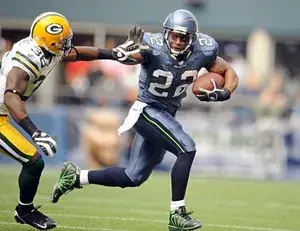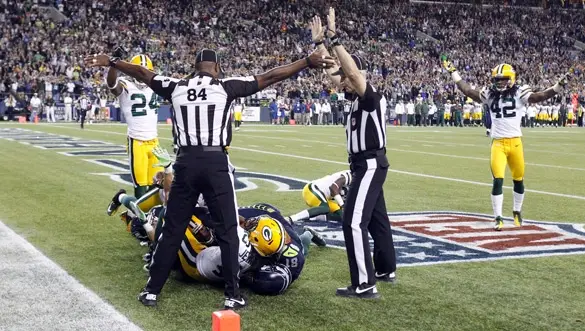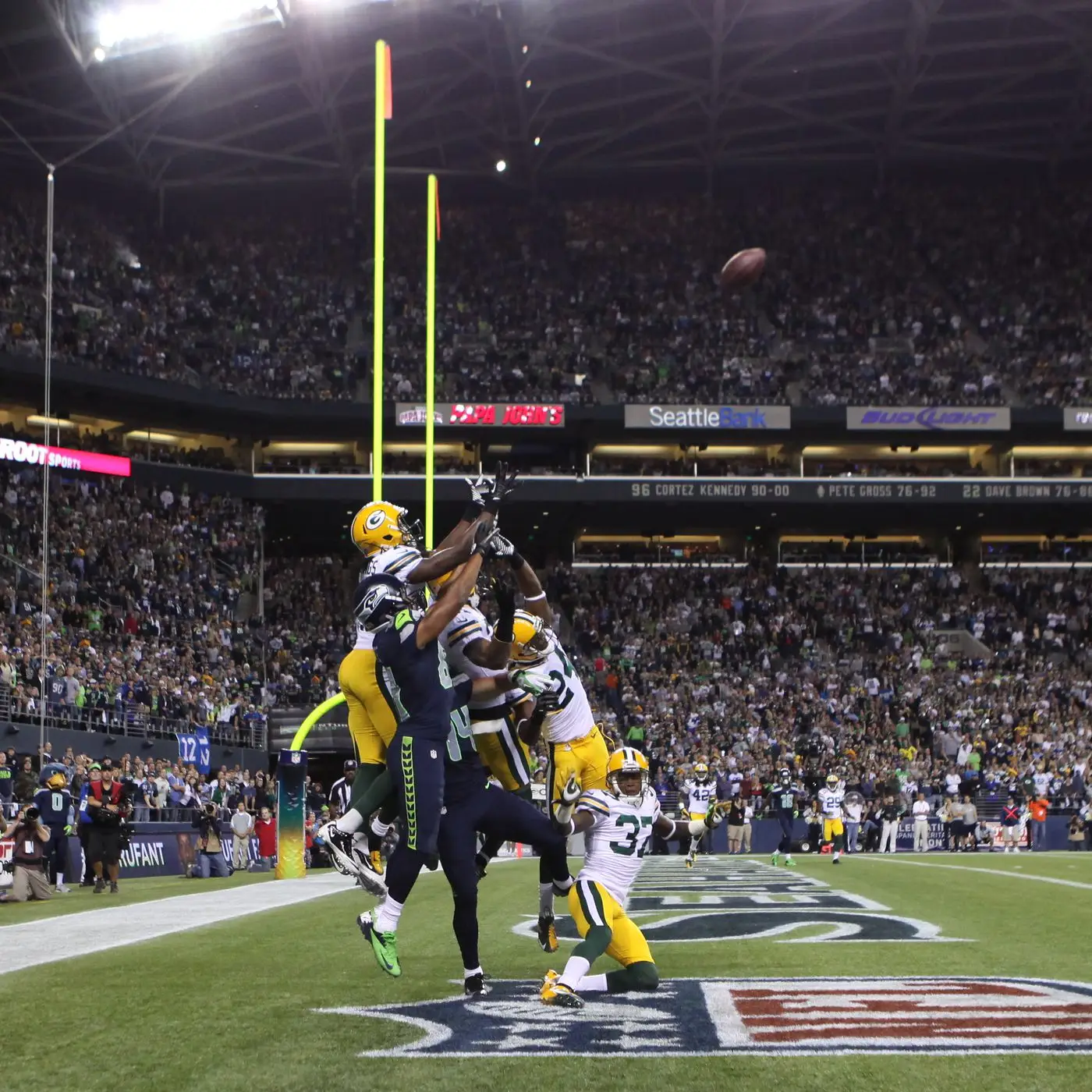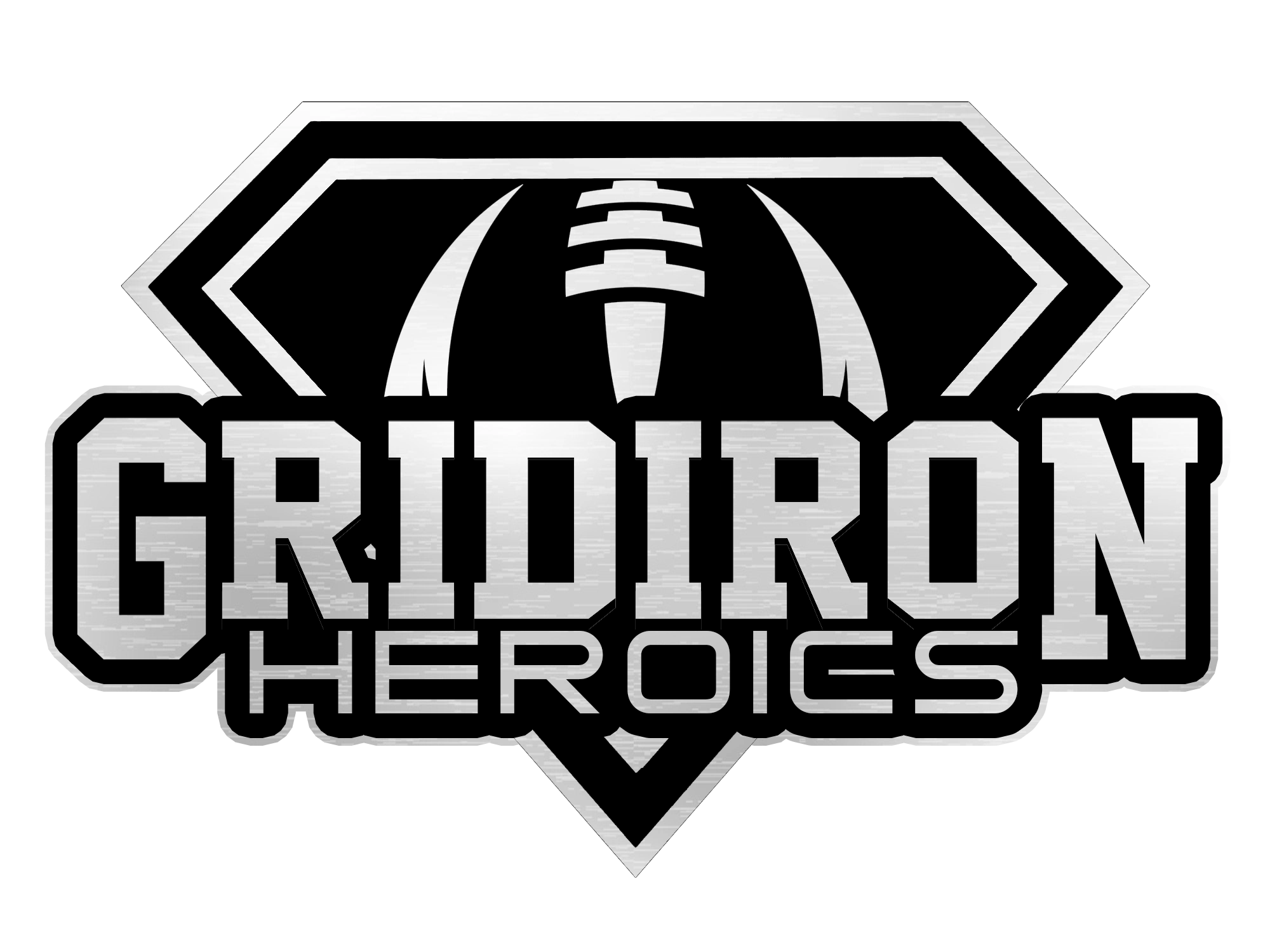When the Green Bay Packers travel to Lumen Field in Seattle to face the Seahawks on Sunday, December 15, loyal fans of the green and gold who tune in to their televisions will be forced to confront lingering and poignant demons associated with that particular house of horrors that have gnawed at their very souls for over 12 years.
One of the Packers’ most brutal defeats in their storied history took place on January 18, 2015, in the NFC Championship Game, forever known to Wisconsinites simply as “The Brandon Bostick Game.” Green Bay was a successfully-fielded onside kick away from punching their ticket to Glendale, Arizona, for a date with the New England Patriots in Super Bowl XLIX.
But, Bostick muffed away that chance. The Seahawks recovered and eventually prevailed in overtime to abruptly end the Packers’ season and dream of a championship.
Arguably, the list of sleepless nights because of Seattle’s stadium, which was formerly known as CenturyLink Field until 2020, begins and ends there. However, a Monday night contest played in the Pacific Northwest two seasons before was equally as heart-wrenching but provided an extra layer of strange and indescribable drama never seen before nor after.
Green Bay Packers: Star-Crossed In Seattle

Sunday’s game at Seattle will mark the tenth time the Green Bay Packers have journeyed to play in Washington; including the ill-fated 2015 loss, the Packers have emerged victorious only twice out of their previous nine attempts, and one of those wins came at the old Kingdome. Their only triumph in the Seahawks’ current venue was a 27-17 conquest on October 12, 2008.
In that game, Packers’ quarterback Aaron Rodgers threw for 208 yards and two touchdowns, and Green Bay’s defense picked off Seahawk Charlie Frye twice and allowed just 177 total yards.
The next time the Green Bay Packers stepped inside Seattle’s stadium, all hell broke loose.
Replacement Refs And The Infamous ‘Fail Mary’ Doom The Green Bay Packers

To begin the 2012 NFL season, the league and its referees were embroiled in a labor dispute. The collective bargaining agreement (CBA) between the two, which was established in 2006, was set to expire on May 31, 2012. Despite their efforts, the parties could not reach an agreement, the 2006 CBA expired, and the NFL began hiring and training replacement referees with the intention to lockout existing referees.
The replacement referees officiated the 2012 pre-season games and three weeks of games in the regular season, the last of which was the Monday night game in Seattle.
Pressure was placed on the league to remedy the situation and bring back the “real” referees. A letter from the league’s player association (NFLPA) made it clear that all involved had had enough with the amateur officials. The letter stated that deficiencies such as “poor calls, missed calls and bad game management” on behalf of the replacement officials “will only continue to jeopardize player health and safety and the integrity of the game that has taken decades to build.”
This letter was sent four days before the Packers-Seahawks game, which became the proverbial straw that broke the NFL kingdom’s back.
Just take a look at a few of the more egregious errors committed by the replacement referees–all in the first three weeks of the 2012 season–that preceded the infamous Monday Night game in Seattle:
- Ravens coach John Harbaugh received a 15-yard unsportsmanlike conduct penalty for…simply trying to call a timeout.
- During a Week 1 matchup with the Cardinals, the Seahawks were driving in the red zone to win the game, and called a magical fourth timeout with 30 seconds left.
- After a broken play leads to a scramble by Seahawks quarterback Russell Wilson, Golden Tate unleashes a vicious blindsided crack-back block on Cowboys linebacker Sean Lee. Tate clearly launches on the defenseless player, so when the yellow flag hits the field, a foul called against the wide receiver is soon to follow right? Guess again. Tate, instead, goes unpenalized while Cowboys linebacker Bruce Carter gets called for unnecessary roughness after lightly shoving Wilson out of bonds. Tate was later fined $21,000 for the hit.

With all of that taken into account, the final game of Week 3 between the Green Bay Packers and the Seattle Seahawks was, in fact, a very interesting, yet defensive-minded, game.
In front of a packed house of 68,218, both teams were scoreless after the first quarter. Seattle cracked the lid in the second quarter on a 41-yard Russell Wilson to Golden Tate touchdown strike, and the Seahawks went into the intermission up 7-0.
The only scoring in the third quarter came from the foot of Green Bay kicker Mason Crosby, who booted two field goals to pull the Packers within one point, 7-6.
In the fourth quarter, the Packers finally put together a sustained touchdown drive. Beginning at their own 18, Green Bay marched 82 yards in 16 plays, and the drive culminated with a Cedric Benson 1-yard scoring plunge. The two-point try failed, but the Packers held a 12-7 lead.
After trading punts, the Packers were unable to run out the clock and were forced to punt from their own 4-yard line with 57 seconds remaining. The Seahawks benefited and had great field position at the Packers’ 46 with 46 seconds on the clock, but they needed a touchdown being down five.
Seattle drove to the Packers’ 24-yard line, but after three straight incomplete passes, the Seahawks were faced with a 4th-and-10 in a do-or-die situation.
On that fateful play with eight seconds remaining, Wilson threw a prayer to the left corner of the end zone.
ESPN’s John McTigue wrote what happened next:
‘Wilson’s pass was first snagged by Packers safety M.D. Jennings. Jennings was able to pin the ball to his body as he fell to the ground and landed on top of Seahawks receiver Golden Tate. Tate tried to wrestle the ball away, and his efforts led to confusion among the refs.
‘After minutes of consultation and replay review, the refs ruled it was shared possession and a touchdown for the Seahawks. The call was universally considered to be wrong, and although the play itself was a Hail Mary, it will forever be remembered as the “Fail Mary.”‘
Video of the “Fail Mary”:
https://www.youtube.com/watch?v=wXGFZkIEMK0
The Main Participants Of The ‘Fail Mary’ Had Wildly Different Interpretations Of The Play

Not surprisingly, opinions varied significantly as to who actually came down with the ball in the end zone.
Seahawks receiver and touchdown recipient, Golden Tate’s response:
“I just know what I felt [about the play], and a lot of people criticized my character and my answers, which is fine. You’re always going to have people like that,” Tate said. “I caught balls like that.
“Anyone who has played with me believes I caught that ball because they know what type of player I am and have seen me make plays like that and even better plays.”
Packers’ defensive back M.D. Jennings, who appeared to have secured the game with an interception, had a different slant:
“You don’t have time to make a decision on batting it down or catching it. So I just decided to go up and catch the ball. That’s what I did. I felt like I came down with it, but the ref saw it differently. At first, I couldn’t believe it. But I knew they would go take a look at the play, and I thought the ref would overturn the play. I’m surprised they didn’t.”
In fact, Jennings added the postscript “Screwed in Seattle” when signing 8×10 photographs for Green Bay Packers fans in the months following the game.
One of the other and more overlooked aspect of the play was the overt push-off by Tate towards Packers’ cornerback Sam Shields.
Shields was adamant following the game of the penalty. According to ESPN’s article “Fail Mary”:
When asked if he could feel the push off right away, Shields had no trouble recalling it.
“Oh yeah,” he said.
Did he know who it was?
“It was Tate,” he said.
The NFL admitted in its statement the day after the game that Tate’s shove should have been called offensive pass interference, which would have ended the game and given the Packers the 12-7 win. It would have made irrelevant whether Tate caught the ball or M.D. Jennings intercepted it.
So, what dominoes fell as a result of this historically-controversial play? The first and biggest splash was that the NFL felt pressured to make nice with the actual officials and get them back on the field.
The other unintended consequence was that because of the loss to the Seahawks, the Green Bay Packers finished the 2012 season at 11-5 and earned the #3 seed in the NFC playoffs while the San Francisco 49ers secured the #2 spot with a 11-4-1 record. Had the Packers won in Seattle, they would have been the #2 seed and hosted the divisional round game, most likely against the 49ers. Instead, Green Bay was forced to travel to the Bay Area for that game, and they were defeated, 45-31, thereby ending their season.
Will Sunday night’s game evoke similar dramatic theater? Fans of both teams most likely would not mind an entertaining game, but Cheeseheads across the country could do without another dose of “Seattle Sadness.”

